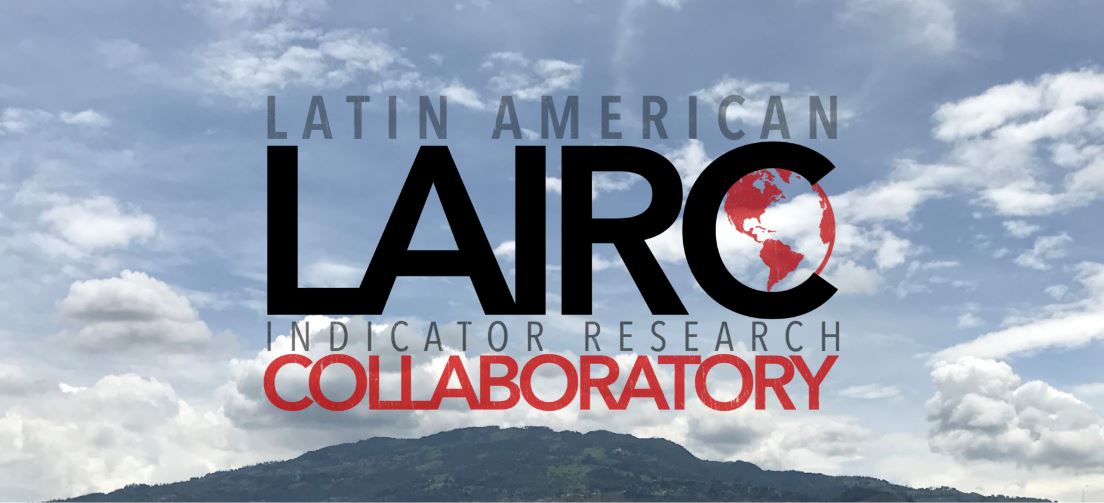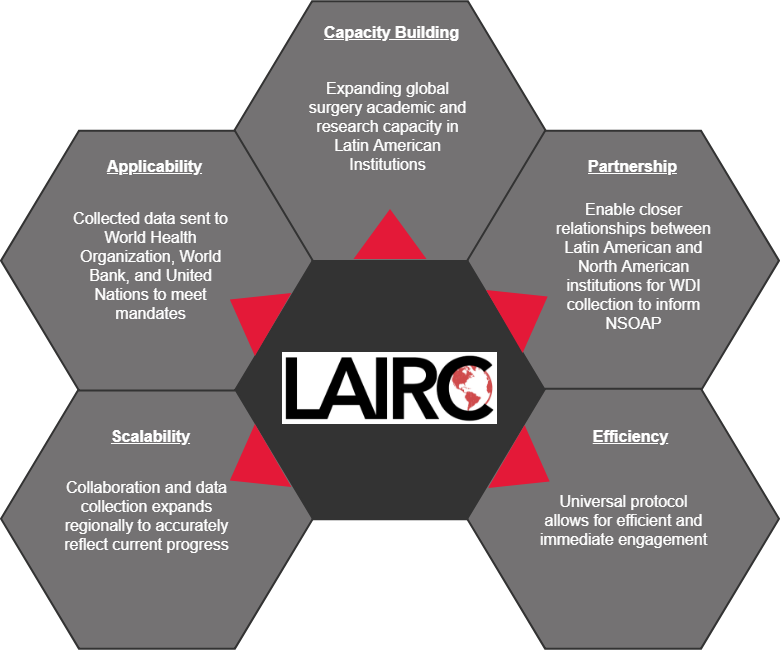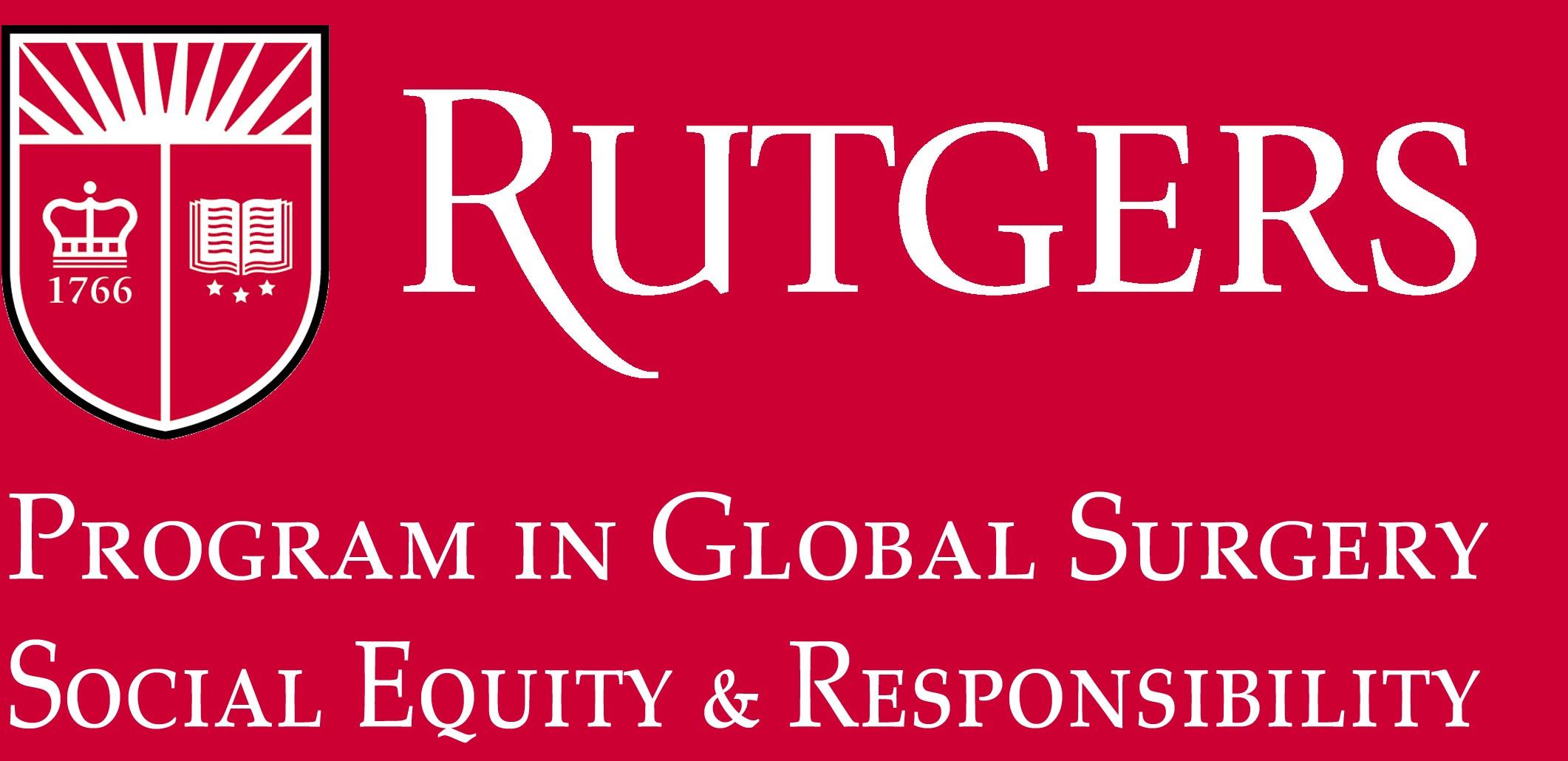
The Latin American Indicator Research Collaboratory (LAIRC) was established to address the call to action established by the Lancet Commission on Global Sugery (LCoGS). Specifically, high quality data collection, analysis, and interpretation of the LCoGS six core surgical indicators [four of which have been accepted as World Development Indicators (WDI)] are needed to assess, inform, and implement National Surgical, Obstetrics, and Anesthesia Planning (NSOAP) in Latin American and Caribbean countries in a transparent manner.
The Latin American Indicator Research Collaboratory (LAIRC) was established to address the call to action established by the Lancet Commission on Global Sugery (LCoGS). Specifically, high quality data collection, analysis, and interpretation of the LCoGS six core surgical indicators [four of which have been accepted as World Development Indicators (WDI)] are needed to assess, inform, and implement National Surgical, Obstetrics, and Anesthesia Planning (NSOAP) in Latin American and Caribbean countries in a transparent manner.
Quick Links
To read an abbreviated version of the LAIRC including the welcome letter, abbreviated procedures of Plans A-D, and the MOU, click here.
Guide to Forming a Global Surgery Partnership and GSRU
Referred to as the “GSRU Checklist,” it contains many of the steps recognized as essential to the formation of a productive global surgery partnership identified through an iterative process
Memorandum of Understanding
The formal legal agreement between the partnering universities in adopting the LAIRC to establish an agreement between the North American and the Latin American/Caribbean institution in forming a GSRU
Sample IRB Protocol for LAIRC
To facilitate implementation, a sample IRB protocol is provided to ensure the rapid initiation of ethically sound work on every institutional end
Plans A – D
Are four tools developed and continually revised after qualitative evaluation of their successes with the aim of assessing surgical capacity and collection of the 6 surgical WDIs via the REDCap data base
Templates
For items such as inter-institutional affiliation agreements to establish a program of scholarly exchange and the exchange of students, residents, and fellows to ensure and promote collaborative learner driven work
Pocket Cards
Informative resources to provide quick on-the-ground reference guide and helpful tips for the GSRU research fellows for each of the Plans A-D
The LAIRC is a steward and promoter of GSRU formation, relationships with peer GSRUs, and the GSRUs’ cumulative progress in WDI data collection, analysis and interpretation of the six surgical WDIs.
We encourage GSRUs to utilize the LAIRC for mentorship in all stages of development.

Application to the LAIRC requires that interested parties complete the following to become a GSRU and acquire the LAIRC toolkit and protocol:
∴ A prospective GSRU may initiate the process of application to the LAIRC by submitting the LAIRC Memorandum of Understanding (MOU) declaring commitment to the terms of transparency, data quality, data sharing and broader implementation of NSOAP
∴ Upon execution of the LAIRC MOU, each partner of the respective GSRU will receive the LAIRC toolkit, IRB research protocol, and REDCap Databases
∴ Prior to initiation of data collection, notification of an official IRB and/or ethics committee approval by both GSRU institutional partners of the LAIRC research protocol must be submitted to the LAIRC
For more information, please reach out to the contacts listed below:
Gregory Peck, DO, FACS or Joseph Hanna, MD, PhD, FACS
LAIRC Co-Chairs, c/o Division of Acute Care Surgery
125 Paterson St.
Suite 6300
New Brunswick, New Jersey 08901
United States
globalsurgery@rwjms.rutgers.edu
Founding Members
Mission: To facilitate cross-sectoral coordination and collaboration between Latin American/Caribbean and North American partners in global surgery, public health, policy, and ministries of health to activate surgical WDI data collection and surgical systems strengthening through health systems research.
The GSRU is the working unit of the LAIRC consisting of a formalized partnership between Latin American/Caribbean and North American Institutions.
The LAIRC is a steward and promoter of GSRU formation, relationships with peer GSRUs, and the GSRUs’ cumulative progress in WDI data collection, analysis and interpretation of the six surgical WDIs.
We encourage GSRUs to utilize the LAIRC for mentorship in all stages of development.

In addition to a welcome letter and brief introduction, the LAIRC Toolkit contains many of the helpful tools necessary to facilitate dissemination and implementation of the LAIRC and GSRU Structure:
Guide to Forming a Global Surgery Partnership and GSRU
Referred to as the “GSRU Checklist,” it contains many of the steps recognized as essential to the formation of a productive global surgery partnership identified through an iterative process
Memorandum of Understanding
The formal legal agreement between the partnering universities in adopting the LAIRC to establish an agreement between the North American and the Latin American/Caribbean institution in forming a GSRU
Sample IRB Protocol for LAIRC
To facilitate implementation, a sample IRB protocol is provided to ensure the rapid initiation of ethically sound work on every institutional end
Plans A – D
Are four tools developed and continually revised after qualitative evaluation of their successes with the aim of assessing surgical capacity and collection of the 6 surgical WDIs via the REDCap data base
Templates
For items such as inter-institutional affiliation agreements to establish a program of scholarly exchange and the exchange of students, residents, and fellows to ensure and promote collaborative learner driven work
Pocket Cards
Informative resources to provide quick on-the-ground reference guide and helpful tips for the GSRU research fellows for each of the Plans A-D
Quick Links
To read an abbreviated version of the LAIRC including the welcome letter, abbreviated procedures of Plans A-D, and the MOU, click here.
Application to the LAIRC requires that interested parties complete the following to become a GSRU and acquire the LAIRC toolkit and protocol:
∴ A prospective GSRU may initiate the process of application to the LAIRC by submitting the LAIRC Memorandum of Understanding (MOU) declaring commitment to the terms of transparency, data quality, data sharing and broader implementation of NSOAP
∴ Upon execution of the LAIRC MOU, each partner of the respective GSRU will receive the LAIRC toolkit, IRB research protocol, and REDCap Databases
∴ Prior to initiation of data collection, notification of an official IRB and/or ethics committee approval by both GSRU institutional partners of the LAIRC research protocol must be submitted to the LAIRC
For more information, please reach out to the contacts listed below:
Gregory Peck, DO, FACS or Joseph Hanna, MD, PhD, FACS
LAIRC Co-Chairs, c/o Division of Acute Care Surgery
125 Paterson St.
Suite 6300
New Brunswick, New Jersey 08901
United States
globalsurgery@rwjms.rutgers.edu
Founding Member Acknowledgements
